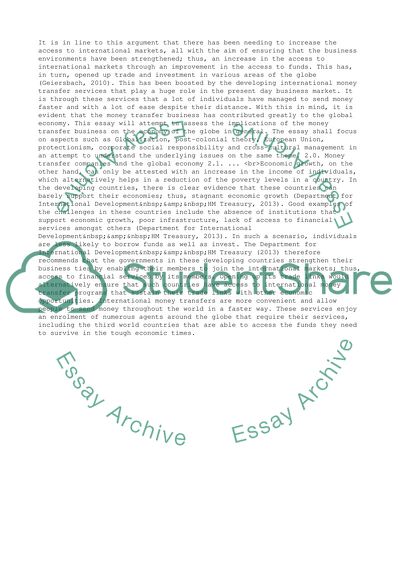Cite this document
(“Implications of Money Transfer Companies on the Global Economy Essay”, n.d.)
Implications of Money Transfer Companies on the Global Economy Essay. Retrieved from https://studentshare.org/business/1494689-implications-of-money-transfer-companies-on-the
Implications of Money Transfer Companies on the Global Economy Essay. Retrieved from https://studentshare.org/business/1494689-implications-of-money-transfer-companies-on-the
(Implications of Money Transfer Companies on the Global Economy Essay)
Implications of Money Transfer Companies on the Global Economy Essay. https://studentshare.org/business/1494689-implications-of-money-transfer-companies-on-the.
Implications of Money Transfer Companies on the Global Economy Essay. https://studentshare.org/business/1494689-implications-of-money-transfer-companies-on-the.
“Implications of Money Transfer Companies on the Global Economy Essay”, n.d. https://studentshare.org/business/1494689-implications-of-money-transfer-companies-on-the.


